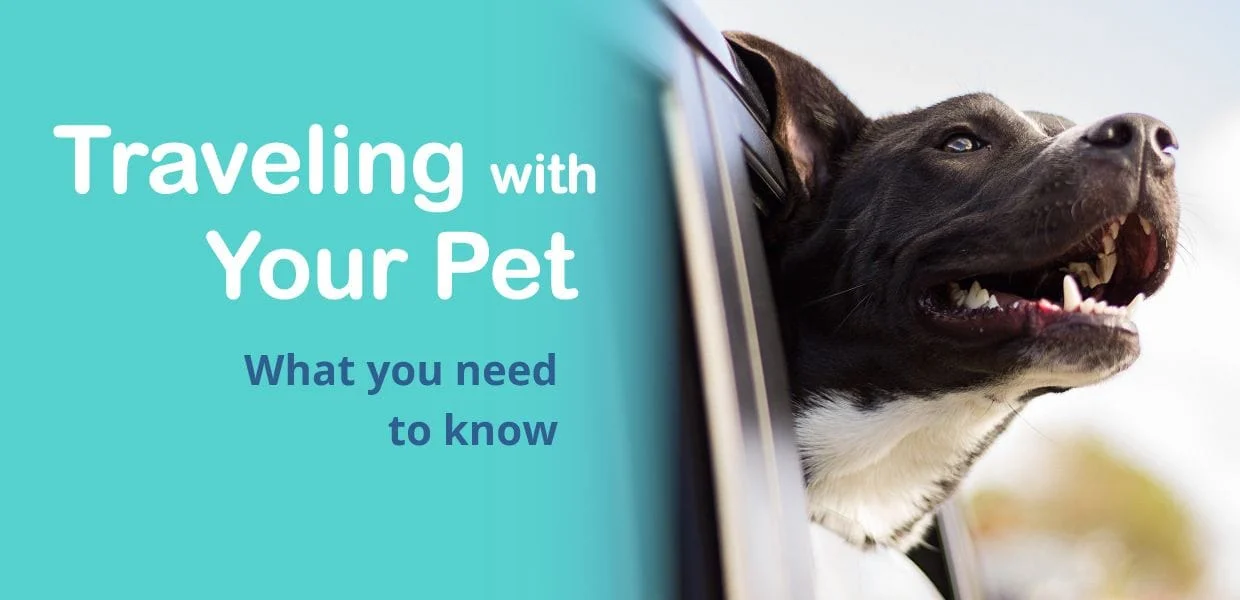There are two types of health certificates available:
One which approves pets for travel within the continental United States, and another which approves them for international travel.
How It Works
Start by visiting the USDA APHIS website to look up specific requirements for your destination of travel. Some destinations require 3-6 months of planning and testing prior to travel. Some countries or states require rabies titers, rabies vaccinations and microchipping many months prior to your travel date. It is the responsibility of you, the owner of the pet, to fulfill the specific requirements of their destination, but our staff will do our best to help you to fulfill these needs.
Acquiring a health certificate will require you to schedule an appointment with your veterinarian. Your pet will receive an overall exam during which the doctor will be able to certify that your pet is healthy and safe for travel, and provide a certificate of veterinary inspection (CVI), an official document that your veterinarian fills out after the exam. The document certifies that your pet is disease free and lists all of the vaccines your pet is up to date on.
Method of Travel
If you are staying within your state and you are driving, you do not need a health certificate issued for travel. However, it is recommended that you have proof of current vaccination for your pet as a precaution.
If you plan on flying you will be required by the airline to obtain a health certificate (and perhaps additional forms), even if you are staying in the same state. Just about every commercial airline will require a pet health certificate for each pet. Some airlines will require a health certificate within 14 days of travel while some will recommend the certificate be obtained within 10 days of travel. While you are in the planning stages of your trip, contact your airline to see if you will need any other paperwork completed in addition to a certificate of veterinary inspection.
If you’re not sure you will need a health certificate, call us today to discuss your travel plans with one of our staff members. We will be happy to help determine whether or not you will need a health certificate for your pet.
1. Keep your pet restrained during the ride. It isn't safe for you or your dog if they are hopping around the car while you're driving. You need to focus on driving, and your dog may distract you if they get excited or scared. Airbags are great for you, but they can kill your pet if you have an accident with them in the front seat. Because of this, pets should be in the back seat. The safest way for your pet to travel is in a carrier that has been strapped to the seat with a seatbelt or other anchor.
2. Take several short trips with your dog to get them accustomed to riding in the car before you take off on a long trip. Gradually increase the length of these shorter trips to work up to long-distance travel with dogs.
3. Pack a travel kit for your pet. Make sure to include your pet's health records, including proof of recent immunizations. Bring your pets regular food, water, medications, and bowls. You should also include the supplies you need to clean up after your pet, such as waste bags and a scoop. To keep your pet happy and occupied during the trip, pack a few toys, including some new ones for novelty and a few old favorites. Lastly, don't forget a pet first-aid kit.
4. Identify your pet. Even if your pet has a microchip, make sure they have a collar with an ID tag with your home address and cell phone number as well. For longer trips and vacations, get a temporary tag with the phone number of the destination where you'll be staying in case your pet gets lost while you're traveling.


